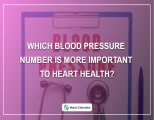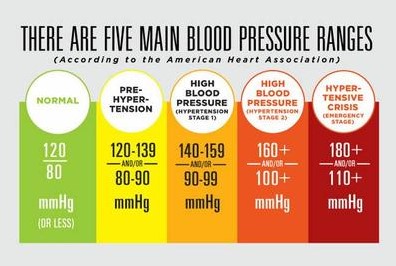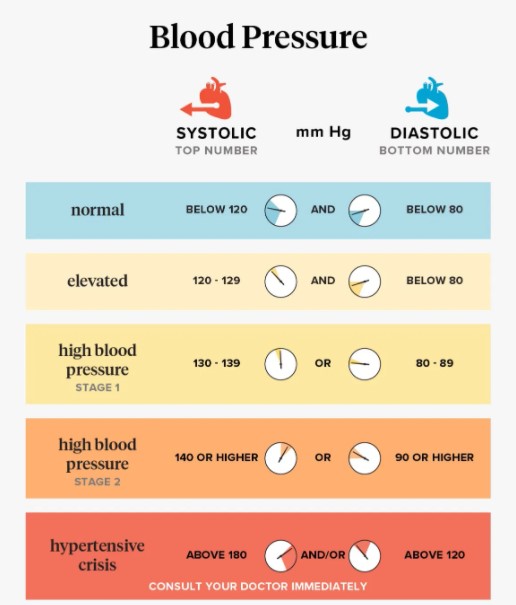 July 02, 2021
July 02, 2021
In medical cases, the lowest number (diastolic pressure) of the blood pressure reader often plays second to highest number (Systolic), but new research has shown that both numbers are important in assessing the likelihood of a person's heart attack.
The study was published Wednesday in the New England Journal of Medicine by scientists at Kaiser Permanente in California on BP Calculator.
There is no doubt, systolic has a more influential effect on the chance of heart disease and heart attack, high diastolic blood pressure is only a second and is a sovereign interpreter of such risks, "said the lead author Dr. Alexander Flint, a stroke specialist."
Systolic refers to the level of stress in a person's veins when the heart squeezes and pumps blood through the body.' We should not declare victory just because one number is regulated. In the veins between heartbeats, diastolic is the pressure.

Over 36 million blood pressure readings were analyzed from 1,3 million adults in the study. All members were members of Northern California's Kaiser Permanente. The majority was white; black just 7.5 percent.
"It is also a good step forward in the treatment of blood pressure because diastolic blood pressure has to be managed because this can increase the risk of stroke," says Dr. Nieca Goldberg, cardiologist at the NYU Langone Medical Center and the Joan H. Tisch Institute for Women's Health's medical director who did not take part in research work.
In the last 10 years, growing evidence has shown that patients have significantly reduced their risk of heart attacks and strokes to levels below what was previously considered to be "normal."
The American Heart Association and American Cardiology Institute modernized their blood pressure plan for 2018. Hypertension is classified for any person with a value over 130/80 mmHg.
None of the findings surprised Goldberg or other external cardiac experts.
A letter has been sent to NBC News from Angela Brown, an associate professor of medicine and a medical specialist in hypertension as well as from the University of St. Louis, Washington School of Medicine. "That I've been saying for many years as normal and diastolic blood pressures will complement each other.
"I reinforce this point when my pupils, tenants, and fellow students practice, despite diastolic pressure they often neglect," said Brown.
Brown has also said that there are high diastolic readings in young people, compared to older people which will have more systolic reading, for the case of 160/90 mmHg than systolic readings, like 140/110 mm Hg.

The same kind of drugs can be used for both systolic and diastolic hypertension, but some physicians might need to adjust medications or the dosage to hit patients below the threshold of 130/80 mmHg.
"Everyone has a different reaction to the medicine, so it really has to be adjusted," said Flint.
Perhaps the biggest driver of hypertension is lifestyle factors. The American Heart Association has suggested many ways to lower and maintain the body’s blood pressure. Which comprise: a balanced, salt-low diet?
Alcohol restriction for men, for women only two drinks a day.
Five days a week, practicing nearly three hours a day.
Smoking ceased.
If your body mass index reaches 25, losing weight.
Scientists also found that both figures are distinct cardiac incident and stroke predictors.
"An ischemic stroke, the type of stroke in which a blood clot blocks an artery in the brain, and hemorrhagic stroke, a blood stroke, and heart disease are strongly associated both in the upper and lower numbers,".
Ramin Oskoui, Cardiologist of Washington, D.C., said "The research is against previous evidence that systolic blood pressure usually is more significant."
Oskoui has been Chief Executive Officer of the Suburban Hospital and Washington Hospitation Society and is affiliated to the Foxhall Cardiology Center.
Indeed, Flint says the results turn decades of common belief on blood pressure readings upside down.
"The idea that systolic blood pressure was far more important than diastolic blood pressure, which is based on previous studies has been widely discussed in the medical literature. Maybe we don't have to take diastolic blood pressure into account. And it could offer the possibility to simplify rehabilitation if this were true. Let's speak only of the one number, "
"There is data here that would be to the detriment of the care of our patients if we ignored the diastolic blood pressure," he added.
From more than 1 million adult Kaiser Permanente members in northern California, the research team analyzed 46 million inpatient readings between 2006 and 2015.
They concluded that both systematic and diastolic pressure influenced your risk factors even if the systolic blood pressure had a greater impact.
That applied both to the older 140/90 threshold and to the new 130/80 guideline.